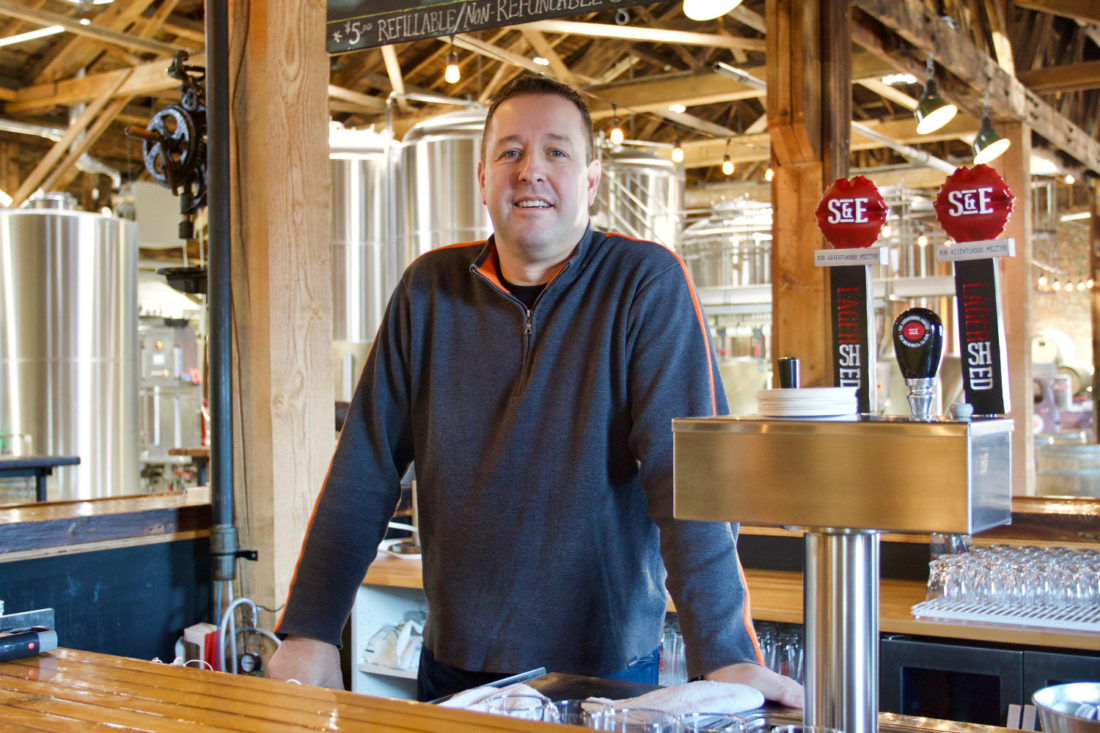
In the middle of Ontario’s craft brewing boom, one segment of the market has been maligned more than any other. It’s become the butt of jokes and a magnet for scorn. The idea that a beer was brewed under contract is an almost immediate disqualifier for serious beer drinkers.
The idea of contract brewing is not a concept that cropped up in Ontario. The Romans were doing it at Vindolanda in Britain nearly 2,000 years ago. You want more recent examples? Well, in the United States, Samuel Adams and Brooklyn both brew under contract at facilities owned by other companies as part of their business model despite having their own (smaller) facilities. It’s a practice nearly as old as brewing itself.
What is it about contract brewing in Ontario that has created such lasting animosity? There are a number of issues.
While companies like Cool in Etobicoke were designed to handle brewing other people’s recipes to scale (Denison’s Weissbier, brewed at Cool, was the number one wheat beer in the world on ratebeer.com for years), the majority of small brewers who brew batches for others do so because they aren’t using their own capacity themselves.
That might mean that the brewery was making styles of beer drinkers weren’t interested in. It might mean that the sales and marketing for that brewery were suboptimal. In some cases, it meant that the beer wasn’t very good.
During the writing of the second edition of the Ontario Craft Beer Guide, my co-author and I could tell which beer was contract-brewed at which host brewery by the predominant off flavours.
Into this situation walks an aspiring beer company owner. It could be an individual or a consortium of people, usually from a field that has provided them ample funding. They might have homebrewed a little, but probably they just know what they like. “How hard can it be?” they might think if it’s a vanity project. Sometimes they have recipes, sometimes they ask for help with design. Sometimes, the brewery making their beer isn’t really equipped to produce the beer they want. (Maybe, for instance, because they have a list of house yeast strains that doesn’t include an optimal one.)
Does that stop them? Of course not. There’s capacity to fill and a living to be made.
Sometimes a brand will bounce around between breweries until it finds a set of equipment or a billing structure that works.
These contract brewery owners were typically not people with industry contacts, which means most of the volume has to go through the LCBO. That takes up shelf space and creates competition for breweries with physical locations. It’s no wonder those companies view contract brewing with a certain amount of animosity. It’s not that contract brewing is evil so much as that the results are frequently not very good and the lack of quality creates a drag on sales for the entire sector.
However, what if you were able to strip away the qualities that make contract brewed products undesirable? That’s what Brunswick Bierworks in Toronto is attempting to do. Rather than spare brewing capacity housed in an aging facility, the equipment is state of the art and recently constructed with the single goal of producing a wide variety of beers in mind. Rather than attempting to keep the brands being contracted a secret, Brunswick is transparent if not outright vocal about its partnerships. If some of those partnerships are international, it’s worth pointing out that Brunswick’s brewmaster is also an import. Lodewijk Swinkels is a seventh generation brewer who jumped ship from De Koningshoeven, a Trappist brewery in the Netherlands, and moved across the Atlantic just to be a part of the organization.
It signals an evolution in the market beyond the original contract model that has allowed Brunswick to grow to nearly 50,000 hectolitres in production over the course of just two years, making it one of the largest independent breweries in the province of Ontario. The brands involved have been incredibly successful. Lost Craft, Woodhouse, and Ace Hill have all improved in quality since moving to the facility and sales through the LCBO reflect that.
“They’re offering options for consumers who are still switching from mainstream import and domestic products,” said owner, Mike Laba. “We’re also offering options other than importing old world beers that have been losing some relevance.”
Brunswick produced Ora et Labora, a Swinkels designed doppelbock available through its retail store in short cans. There are also partnerships with Mikkeller and Omnipollo, the latter of which has resulted in a locally produced version of Zodiac IPA that currently has the fastest rate of sale for an IPA at the LCBO.
This new model can be very attractive for overseas brewers. Shipping a container of kegs or cans from Europe can take months, by which point some nuance is lost in the product’s aroma. Brewing the same beer in East York comes with advantages. There’s the freshness of the product to be considered. There’s no need to go through one of a small number of importers because of direct delivery. It’s also a single contracted batch, so an international brewer could suddenly decide to test the market with a one-off recipe. Innis & Gunn have recently begun doing just that.
Brunswick also offers services that established craft brewers are taking advantage of. Beau’s All Natural, out of Vankleek Hill in the east end of the province, is shipping its flagship Lug Tread and Full Time IPA to Brunswick in tanker trucks for canning while it works on constructing its own packaging hall.
Currently, Brunswick is partnered with 21 separate breweries and producing 64 to 65 different brands. Demand is such that it is already considering expanding capacity to a facility that could hold over 100,000 hectolitres.
At one time, breweries like Left Field, Spearhead and Kensington contracted early batches in order to develop name brand recognition before launching their own physical locations; it is a strategy that has worked for a number of breweries in the province. Neighbouring brewery Muddy York is partnered with Brunswick as an interim step. “From the moment they came to the neighbourhood, they have been super friendly, helpful & supportive of us,” said Muddy York’s brewer Jeff Manol. “I was always very much against contract brewing because I want to be brewing the beer we sell the way I want to brew it.”
Faced with mass popularity of their Gaslight Helles, capacity became an issue. “We have access to a world-class facility without having to find $2-3 million to upgrade our current system to meet demand. It’s allowed us to increase our sales dramatically beyond what we are capable of, which is going to help us with financing when we do decide to expand our current facility. It’s also freed us up to experiment with new styles and to keep things interesting for us and our customers.”
At a conservative estimate, there is well over 100,000 hectolitres worth of capacity for contract brewing in facilities across Ontario at the moment and that seems poised to expand. Given the increasingly diverse manner in which that capacity is being used, it is probably time to concede the fact that there may be some nuance to the problem. At Brunswick, they have managed something fantastic: they have turned an established model on its head.




